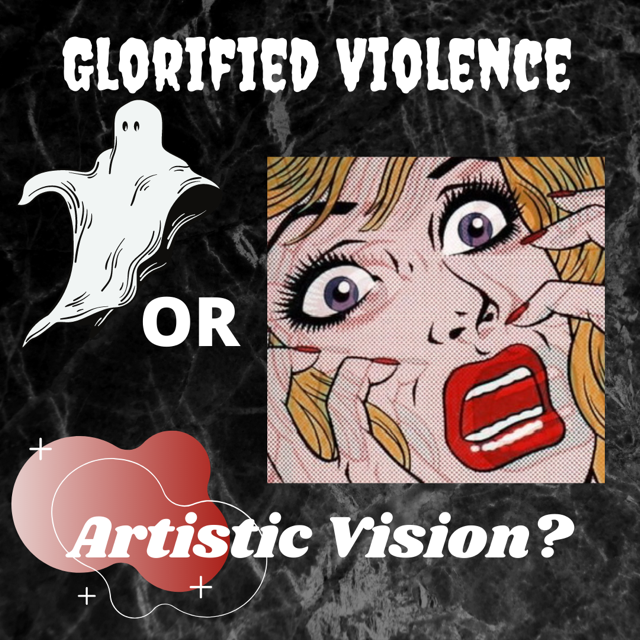The Blurred Lines of Artistic Expression and Violence
The direction that horror and suspense directors are taking film poses important ethical dilemmas, and how it’s received by fans can only be seen as disturbing.
Many friends of mine love the thrill of a good suspenseful show. They relish the feeling of anxiety and unease, wondering, “What will happen next?” I decided I would dive into the world of suspense and horror entertainment. I watched Midsommar, one weekend, and I was absolutely blown away by the gore and inexplainable draw to the main character and so-called protagonist Dani (Florence Pugh) I felt throughout the film. I sat, stomach queasy, wondering, was I supposed to root for this girl? Am I supposed to be enthralled by the brutal murders of all the supporting characters?
I decided I needed to check out more about the movie and scrolled through reviews of what the underlying meaning of the story was. Many of the interpretations of the film were almost as shocking, if not more, than the actual movie itself. Dani is beloved and praised by the fanbase even though she let a Swedish cult kill her boyfriend. I mean, I understand the value of breaking off a toxic relationship, but stuffing you ex in a hollowed-out bear and burning him alive is a bit extreme.
This led me down a road of curiosity. How many other films are like this? How often is this beautification of disgusting acts occur in the entertainment industry? A few things came to mind: shows like Hannibal, a spinoff of the hit 90’s movie Silence of the Lambs, and Killing Eve, a show that includes a romance similar to the show Hannibal, where a heartless serial killer wins over the heart of the protagonist, barring all logic and reason. Movies like Extremely Wicked, Shockingly Evil and Vile and Joker have also been heavily criticized for a romanticization of bloody and brutal main characters.
Now yes, this is a far-out plot that could never be realistic, and yes, those who enjoy these shows have no true consequence on the rates of violence occurring, it still poses a greater question. Is it ethical to make audiences purposefully fall in love with these “protagonists” that are brutally murdering and torturing individuals? Is this really art?
Personally, as I’ve been doing my research, I worry. This attraction to horrible individuals in entertainment reminds me of hybristophilia, also known as Bonnie and Clyde syndrome. People, specifically seen in women, feel as though they are in love or are sexually attracted to those who have been convicted of serial murders.
It is insane the amount of people that have “fan accounts” for men who murdered dozens of people, picturing them as their husband and soulmate. This is completely revolting, and while these girls believe it is harmless, they are disrespecting the family members of those who lost their lives from a crazy psycho.
Now, it may be a reach to associate these shows with this symptom, but let me tell you, I have looked into the depths of these TV show and movie fandoms, and it is not pleasant to see the rampant fantasies of being with the supposed protagonists that are gutting the life out of people in the actual show. I am 100 percent against the censorship of artistic vision, but this kind of behavior is the outcome from these shows.
Talking to fans in this sect of suspense/horror, I have found out that they love the overall philosophical ideas. The viewer must decide for themselves what is right and what is wrong, and directors in the industry are trying to twist and blur those lines. Ethics are such an interesting topic, and I can sit and question the true evil in characters that are supposed to be good forever. This type of entertainment forces me to wrack my brain and evaluate my true morals, and I believe that is the draw for most. In Midsommar, would I really be able to fend off the brainwashing tendencies that make the murder of innocent people acceptable? Can I really stop from feeling the pressure of peers? Am I strong enough in my morals?
I think at the end of the day, those who enjoy twisted shows and movies, should think of their conscience and morals before idolizing these monstrous characters. I love the fandom culture and communities, but it makes me sick to see it taken to such a dark extent.

